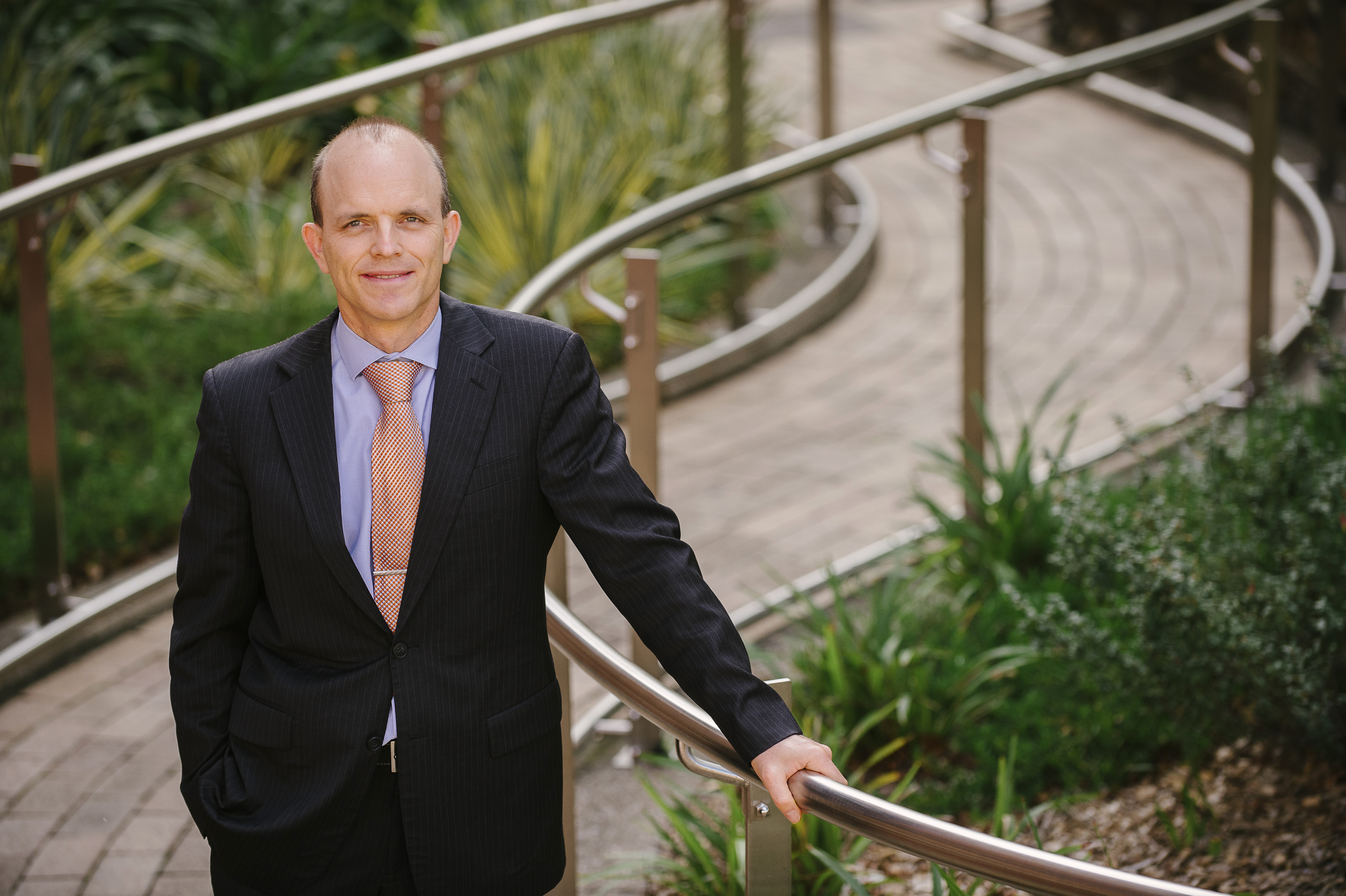how an insider's unique view is driving exciting breakthroughs in ovarian cancer research.
Article by Michelle Fincke
[Approximately 3 minutes 30 read time]
As a student, Professor Martin Oehler was curious: he explored biology and medicine, research and genetics — the more he knew, the more he wanted to know.
“When you're young, you want to understand the world and the more knowledge you acquire, the more fascinating it becomes,” he reflects. “And at some point, you want to change things…"

Professor Oehler wants to impact the future for women with ovarian cancer, and he has the diverse skillset to achieve that. Director of Gynaecological Oncology at the Royal Adelaide Hospital and Clinical Professor of Obstetrics and Gynaecology at the University of Adelaide, Oehler is both a clinician and surgeon.
But he’s also a seasoned researcher. His varied OCRF-funded research projects have contributed to our deeper understanding of ovarian cancer and revealed new possibilities for early detection and treatment.
Professor Oehler’s “two worlds” overlap, giving him unique insight into the lives of patients and how he can help them. In turn, his patients contribute to the potential of an ovarian cancer-free future by consenting to provide the biospecimens essential to his team’s research.
“Seeing patients with cancer affects you,” he says.

With my clinical experience and scientific knowledge, I knew this was an area I wanted to work in because I saw both sides - the damage the disease causes and how it affects patients. And I could see that my work in the laboratory could contribute to improving outcomes."
Professor Oehler was born in Germany and completed obstetrics and gynaecology training close to home, but his post-grad studies took him all over the world, from Houston to Oxford and finally Australia. Most students became clinicians or researchers, he says, but rarely both.
"I do the surgery, am involved with chemotherapy, include patients in clinical trials and do research. I see the whole picture because I'm working in all these areas. And from research, I have a network of international colleagues. I'm up-to-date with the latest developments, I make sure that patients get access to the latest drugs as part of trials. I attend fundraisers and try to increase awareness. It's all part of the story."
A recent world-first project supported by the OCRF illustrates the power of Professor Oehler’s diverse skillset. With the aim of developing an accurate blood test for early detection of ovarian cancer, the “holy grail” for researchers, he took blood samples directly from cancerous ovaries.
Standard blood samples, taken via the arm, might contain specific proteins indicating the presence of ovarian cancer, but they are trickier to detect when diluted in five to six litres of blood from all over the body. Oehler and his team have identified several proteins produced in response to cancerous ovarian tissue. Focusing on these proteins, the team compared the blood from the tumour with a standard sample from the arm. They found these proteins in higher concentration in the tumour samples, denoting possible markers of the patients’ immune response to cancer.
"To do this, you need to have somebody who does the surgery and that's my advantage. I'm a researcher and a clinician so I did the surgery, took the blood and sent it to the lab. A clinician might have the idea, but without access to a lab or to research, it won't happen. And if a researcher has a bright idea, but doesn't get access to the sample, then it doesn't happen either. It’s an exciting project and there’s more work to do.”
Professor Oehler’s connection to the OCRF spans nearly two decades: from a young research fellow to a scientific adviser, board member and a leading researcher.
“Without the OCRF we wouldn't have been able to start projects,” he says. “The problem with new research is that you don't have much preliminary data to support grant applications, which is difficult especially when you want to be more creative in the approach.

The OCRF is specifically looking at projects which have the potential to benefit ovarian cancer patients, and that's a different perspective to government funding."
If there’s a downside to life as a clinician/researcher says Professor Oehler, it would be the hours. “I work around the clock because it's not something you can easily switch off. It’s a total commitment.”
support researchers like Professor Martin Oehler
The OCRF offers annual grant funding to researchers like Professor Oehler, ensuring they can spend their time working on life-saving discoveries for ovarian cancer patients. You can help fund their research by giving monthly to the OCRF. With your help, we can provide sustainable, reliable funding.
Give monthly